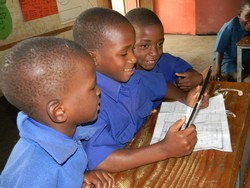Research advances the debate around emerging digital data as a new technology medium in international development
The EU-funded D4D (Data for development: The implications of new types of digital data for international development) project worked to introduce ethical frameworks for the use of big data in international development policy and practice. Research efforts centred on how the availability of such data is attracting new actors and institutions into international development, and how development organisations deal with the ethics of privacy and data protection in this context. They were also concerned with how the potential benefits of knowing more about developing country populations are being weighed against the risks of tracking and identifying individuals and groups. Project partners focused on individuals producing the data, organisations and institutions using it, and policymakers and technology firms that address technical and regulatory aspects of data production and storage. Through case studies, they gathered evidence from various sources, including mobile phone operators that produce big data from users in low- and middle-income countries and an IBM project to optimise Bangalore’s water system. D4D involved participant observation at international events associated with the International Data Responsibility Group. This was done to understand the development of this new group of actors within the data for development movement, their objectives and perceptions of related ethical challenges. The D4D project also examined the issue of ethics in data for development. It linked to international networks of scholars, practitioners and corporations working in the field. Such efforts helped to define and discuss ethical questions that are new to data analytics. In addition, links were established with scholars and practitioners in sub-Saharan Africa, India and Latin America, and with activist organisations. Researchers also engaged in international and multidisciplinary discussions on the concept of group privacy. Project efforts resulted in the publication of 7 peer-reviewed articles in international journals, 3 book chapters, and over 20 international presentations and talks. One of the main outputs of the grant was a book on 'Group Privacy (2017)', which broke new ground in privacy studies using empirical findings from the D4D project. Issues arising from the use of big data in development and humanitarian response have come to the fore thanks to D4D.







